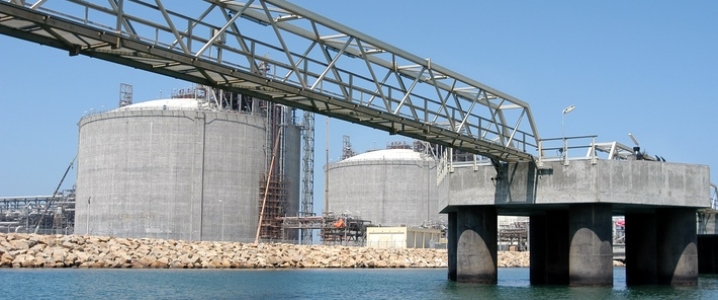Thanks to a huge natural gas discovery off its coasts, Egypt has just become self-sufficient in this key energy source, welcoming what it hopes to be its last liquefied natural gas (LNG) cargo last week.
The country, however, continues to depend on imports for gasoline and diesel. Under a deal for loans from the International Monetary Fund (IMF), the country is overhauling its energy subsidies program, aiming to let fuel prices reach international levels and stop subsidizing fuels by the middle of next year.
But rising oil prices—now at levels way above prices that Egypt had factored into its budget and state finances—mean that the government will be spending more on fuel subsidies this fiscal year through June 2019, when it plans to have phased out the support for fuel prices.
The higher price of oil may soon pose a dilemma for the government: either risk public discontent by letting fuel prices reach market-price levels, or miss its targets for cutting the deficit, economists and analysts tell Bloomberg.
Higher oil prices—with Brent Crude above $86 a barrel early on Thursday morning—could additionally burden Egypt’s state finances by offsetting the savings that the government would achieve by ending the imports of LNG.
At the beginning of this year, Egypt’s Petroleum Minister Tarek El Molla said that Egypt would start saving US$250 million each month after it ended its LNG imports. The start-up of the huge Zohr gas field, which Italy’s oil and gas major Eni discovered in 2015 when it said that it was the largest ever gas discovery, has now made this possible. Zohr’s production has jumped six-fold since it was launched in January this year.
Egypt now aims to become a regional natural gas hub for re-export and could shore up its budget by saving around US$2 billion a year from natural gas imports. Related: Is Argentina Producing Too Much Natural Gas?
But the rallying oil prices come at a bad time for Egypt’s energy and economy. Although higher prices could raise Egypt’s revenues from exports of its own crude oil, they are lifting the price of fuels. If the government wants to meet its energy reform targets, it has to lift fuel prices much higher than it had thought it would when it started to enact the subsidy reform. The dilemma is whether to let fuel prices rise sharply and stir discontent, or to find some other means to fund the subsidies, according to Salma Hussein, a researcher with the Cairo-based Egyptian Initiative for Personal Rights.
“The government will probably choose what it did in the past couple of years -- increase borrowing, in addition to cutting subsidies and wages,” Hussein told Bloomberg.
Egypt has budgeted its 2018/2019 finances assuming oil prices at $67 a barrel. With the fuel subsidies not yet phased out, the government needs additional money to fund the subsidies this fiscal year though June 2019.
According to Bloomberg calculations, Egypt plans to spend US$5 billion (89 billion Egyptian pounds) on fuel subsidies this fiscal year, assuming oil at $67 a barrel. Every dollar of the oil price above the budgeted $67/b means additional US$223 million (4 billion Egyptian pounds) that has to be spent on fuel subsidies. The higher spending on energy subsidies means that Egypt may fail to meet its target for budget deficit this fiscal year.
The government faces the same dilemma that all crude oil-importing countries are now facing—how to mitigate the effect of rallying oil prices on their economies.
By Tsvetana Paraskova for Oilprice.com
More Top Reads From Oilprice.com:
- OPEC Accused Of Hiding Spare Capacity
- Why The Saudis Can’t Keep A Lid On Oil Prices
- Citi: Brent-WTI Spread Could Widen To 5-Year High


















